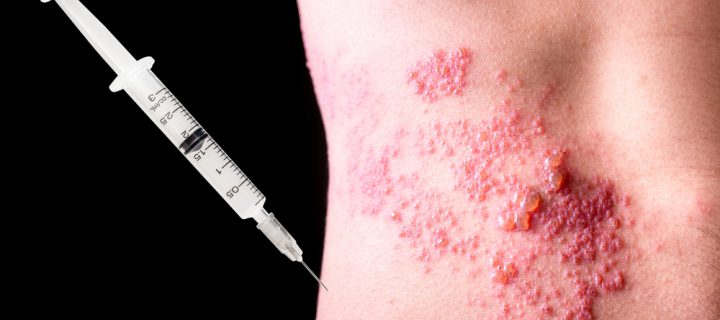This illness typically targets seniors and is a resurgence of the chickenpox virus.
If you’ve been following the news, you may have noticed Justin Beiber, the famous Canadian pop singer, in the headlines because of a strange sickness affecting his face. He’s presently unable to move half of his face including his mouth, nose, cheeks, and the muscles around his eyes, because of a virus.
Beiber has been reportedly turning to his religious faith in order to confront the ordeal and to try to get through it with what has become his now typical, undaunted, unassertive strength. Hopefully he’ll soon see brighter days and be able to move through his challenges, (even with the whole world looking at him).
So, what the heck does Beiber have? And when will he get better? Here’s a quick look.
What is Ramsay Hunt Syndrome?
Ramsay Hunt Syndrome is one of those illnesses that ties back to childhood chicken pox. Once you’ve had chicken pox, (at any age, actually, not only as a kid), the sickness goes away but the virus continues to live in your nerves. It can reactivate years later, as in Justin’s case, in the form of shingles or this syndrome. When the virus does this, it can affect the nerves in your face causing paralysis. Ramsay Hunt Syndrome can even cause you to lose your hearing in the ear that’s affected.
Related: Using anti inflammatories can increase your risk of developing chronic pain: study
Sometimes the symptoms of this infection become permanent but in most people, the facial paralysis and hearing loss that come with it is temporary.
Get treatment quickly to prevent long-term damage
The experts at the Mayo Clinic say if you catch Ramsay Hunt Syndrome within the first three days of seeing symptoms, you might have a better chance of preventing long-term complications like permanent muscle weakness or paralysis from taking hold.
This infection can also present as a painful rash that creates fluid-filled blisters. A doctor may swab these and test them for the virus when assessing you. The bad news is, these blisters can be super painful and in severe cases, the illness causes permanent damage to your nerve fibers which can result in pain that lasts for a long time even after all the other symptoms of the syndrome have subsided.
Doctors typically treat Ramsay Hunt Syndrome with:
- Antiviral drugs
- Corticosteroids
- Pain relievers
- Anti-anxiety meds
How can you prevent it?
If you’ve already had chickenpox and you’re over the age of 50, you can receive the shingles vaccine which can help protect you from developing Ramsay Hunt Syndrome. Unfortunately for Beiber, he’s much younger than the typical patient who develops this illness, (they’re more often over the age of 60). Because of this, it’s unlikely that he’s received the shingles vaccine already.
What about other people? There’s also now a vaccine against chickenpox, which can prevent Ramsay Hunt Syndrome. Beiber was probably about 10 years old when he would have had access to this, as this vaccine was only available for widespread use in 2004 in Canada. The chickenpox vaccine is advised for anyone who hasn’t yet had chickenpox as it can prevent serious cases of the illness as well as things that are the result of the chickenpox virus resurfacing in your body years later.
For more on this syndrome visit the Mayo Clinic’s website. To Justin Beiber: get well soon.
photo credits: adtapon duangnim/Shutterstock.com/Shutterstock.com












